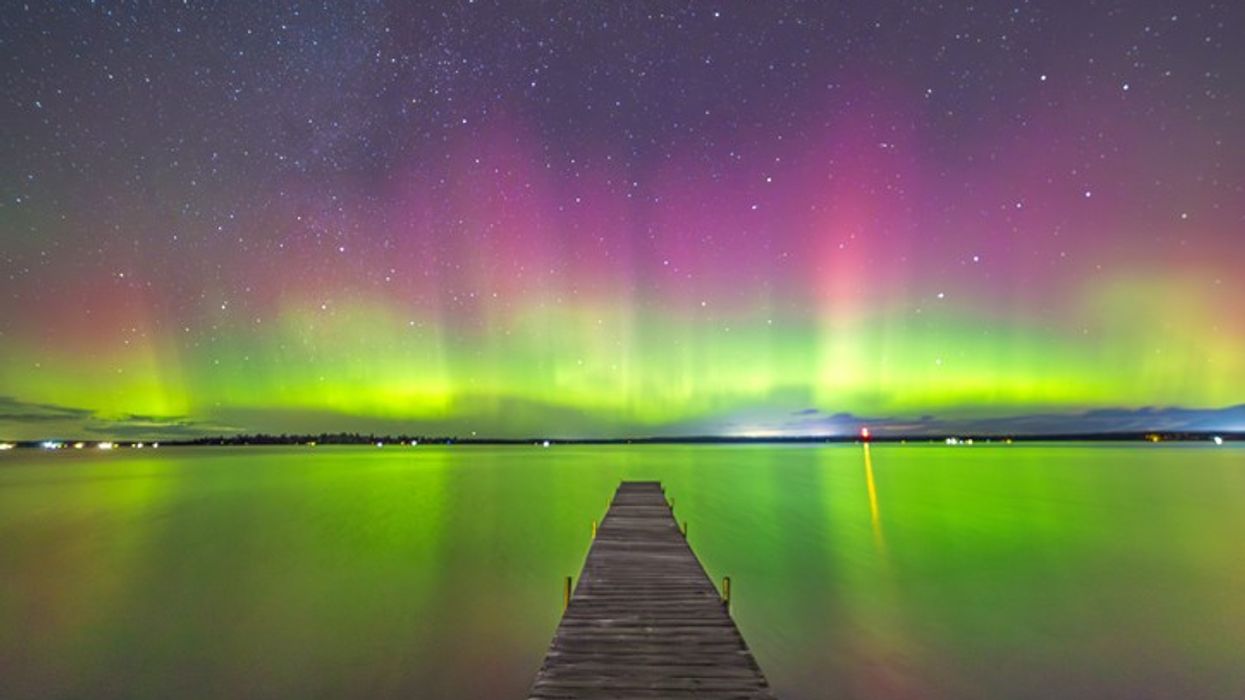The Northern Lights, also known as the Aurora Borealis, could make a rare appearance over Sussex this evening, Tuesday 15 April, according to the Met Office.
A Coronal Mass Ejection (CME) – a significant release of plasma and magnetic field from the Sun – is forecast to reach Earth later tonight, potentially making the aurora visible across parts of the UK, including southern England.
In a statement, the Met Office said: “The aurora is expected to be at normal background levels until the arrival of a Coronal Mass Ejection, most likely later on Tuesday, April 15 and continuing into Wednesday, April 16.
“This is likely to bring the auroral oval to northern parts of the UK and similar geomagnetic latitudes, with a chance of some visibility towards the northern horizon for much of England.
“However, cloud cover over much of the UK will limit aurora viewings. The auroral oval will ease to background levels thereafter.”
Visibility in Sussex
While aurora sightings are more common in northern regions, they have occasionally been visible as far south as Sussex. In recent years, there have been multiple reports of the Northern Lights lighting up the Sussex skies, with many residents capturing striking images of the natural phenomenon.
There are several recommended dark sky locations in Sussex that could improve the chances of viewing the display. Camber Sands beach and areas within the South Downs National Park are among the popular spots for stargazing due to low levels of light pollution.
However, the Met Office has warned of cloudy conditions this evening across South East England, with the possibility of further showers or spells of rain. These weather conditions may reduce the likelihood of clear visibility for those hoping to witness the aurora.
What causes the Northern Lights?
The Aurora Borealis is caused by interactions between the Earth's magnetic field and charged particles from the Sun. These particles are ejected during solar storms and can travel millions of miles through space.
The Royal Museums Greenwich explains: “Solar storms on our star’s surface give out huge clouds of electrically charged particles. These particles can travel millions of miles, and some may eventually collide with the Earth.”
“Most of these particles are deflected away, but some become captured in the Earth’s magnetic field, accelerating down towards the north and south poles into the atmosphere. This is why aurora activity is concentrated at the magnetic poles.”
Tom Kerss, an astronomer at the Royal Observatory, added: “These particles then slam into atoms and molecules in the Earth’s atmosphere and essentially heat them up.
“We call this physical process ‘excitation’, but it’s very much like heating a gas and making it glow.”
A glimpse
While there is potential for the Northern Lights to be visible across parts of England this evening, including Sussex, visibility is heavily dependent on weather conditions. Those hoping to catch a glimpse are advised to head to dark, open areas away from light pollution, but be aware that cloud cover may hinder sightings.





